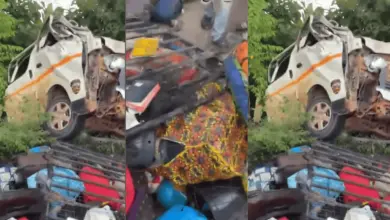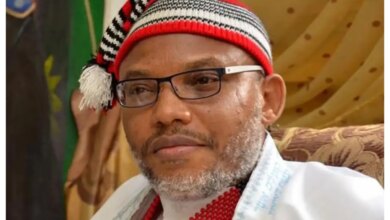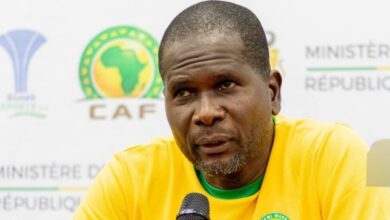The El Wak Tragedy: The burden of inheritance and the cost of neglect


It was shortly after dawn on Wednesday morning when six young Ghanaians, having risen with the first light and dressed with particular care, made their way to El Wak Stadium with the earnest intention of enlisting in the service of their country. By the time the sun had properly cleared the horizon, all six were dead.
One might be tempted to call it a tragedy in the classical sense — a reversal of fortune precipitated by some fatal flaw. But that would suggest an element of individual failing, of character weakness, of avoidable error. What occurred at El Wak Stadium was none of these things.
It was, rather, the logical terminus of a decade’s worth of governmental neglect, a reckoning that had been gathering force like a storm at sea, and which finally broke upon our shores with devastating effect.
The young people who perished were not reckless. They were not foolish. They were, in point of fact, behaving with perfect rationality given the circumstances that had been carefully constructed around them over the course of nearly ten years.
A Decade in the Making
Let us speak plainly about how we arrived at this particular Wednesday morning.
The NPP administration, which held the reins of government for the better part of a decade, pursued what one might charitably call an experimental approach to economic management. Less charitably — and perhaps more accurately — one might describe it as a systematic dismantling of the very foundations upon which a functioning economy must rest. They spent with abandon, borrowed with enthusiasm, and governed with an insouciance that would have been admirable had it not been so catastrophically misplaced.
The result was predictable to anyone who had troubled themselves to study the matter. Businesses closed their doors. Foreign investment, sensing the prevailing winds, sought more hospitable shores. Young people, having invested years in their education, found themselves queuing for positions that did not exist, or accepting work so far beneath their qualifications as to render the entire exercise of education rather beside the point.
But the previous administration possessed a remarkable talent for mistaking activity for progress, for confusing the announcement of initiatives with their implementation, for treating unemployment figures as regrettable statistics rather than as individual lives being slowly crushed by the weight of unfulfilled promise.
The Arithmetic of Desperation
By the time the NPP departed office, they had bequeathed to their successors what might be described as a poisoned inheritance — a term that fails to capture the full scope of the disaster but serves well enough. Youth unemployment had reached levels that would have alarmed any government possessed of even a modicum of foresight. Graduate unemployment had become so commonplace as to cease being news at all.
When hundreds of young Ghanaians breached security protocols at El Wak Stadium at twenty minutes past six in the morning — well ahead of the appointed hour — they were not engaging in lawlessness for its own sake.
They were, rather, performing a rather precise calculation: that their chances of securing one of the limited positions on offer decreased with every passing minute, and that the risk of injury in the crush was preferable to the certainty of continued unemployment.
It is worth pausing to consider what sort of society creates such arithmetic. What manner of governance renders it rational for young people to risk life and limb merely for the opportunity to serve their nation?
No parent should have to bury a child who died seeking nothing more than dignity and purpose. Yet six families must now do precisely that, and several others wait anxiously beside hospital beds, hoping their children will recover from injuries sustained in pursuit of what should have been, in a properly ordered republic, a straightforward administrative exercise.
The Burden of Office
The current administration has inherited not a government but rather the shell of one — a structure that retains the outward forms of governance whilst having been hollowed out from within. This presents challenges of a rather particular order.
One cannot simply announce that things shall henceforth be different and expect reality to comply. The machinery of state, having been allowed to fall into disrepair, requires patient and systematic reconstruction.
Business confidence, having been thoroughly shattered, must be rebuilt through consistent action rather than hopeful pronouncements. The private sector, which ought to serve as the primary engine of employment, must first be convinced that the rules of the game have changed before it will venture capital and create positions.
This is delicate work, requiring both boldness and patience — qualities not often found in tandem.
Yet the imperative for swift action remains. Employment is indeed a shared responsibility between the free market and government, but both parties to this partnership require an environment in which to function. The previous administration poisoned that environment rather thoroughly.
The current government must now perform the rather thankless task of decontamination whilst simultaneously demonstrating tangible progress to a population whose patience has been exhausted by years of empty promises.
The Social Contract, Examined
Let us consider for a moment the nature of the bargain between a government and its citizens, particularly its young citizens.
The state asks a great deal of its youth. It asks them to defer gratification, to invest years in education, to abide by laws and norms, to pay taxes, to serve when called upon. In exchange, it offers — or ought to offer — the reasonable prospect of a dignified life, of employment commensurate with one’s abilities, of the opportunity to contribute to the common good whilst providing for oneself and one’s family.
When a government fails to hold up its end of this bargain — when it transforms the reasonable prospect of employment into a desperate scramble — it has violated the social contract in its most fundamental sense. The previous administration did precisely this, with a thoroughness that might have been impressive had it not been so destructive.
The current government now faces the rather urgent task of demonstrating that this contract can be restored, that trust can be rebuilt, that the system can function in the interests of its citizens rather than in spite of them. The political climate remains volatile — and let us be clear, this volatility is entirely a product of NPP mismanagement — precisely because Ghana’s youth have begun to question whether the system retains any legitimacy at all.
History is rather unforgiving on this point. Nations that lose the faith of their young people do not typically recover without considerable turmoil. The question is not whether such upheaval could occur in Ghana — the conditions for it have been carefully cultivated over the past decade — but whether the current administration can act with sufficient speed and purpose to prevent it.
The Path Forward
What, then, is to be done?
The administration must begin by acknowledging the full scope of what it has inherited. This is not a matter of political point-scoring but of clear-eyed assessment. One cannot chart a course to a destination without first establishing one’s current position, however unpromising that position might be.
Having established the baseline, the government must then move decisively across multiple fronts. It must restore fiscal discipline whilst demonstrating that austerity need not mean abandoning the young. It must rebuild business confidence whilst ensuring that growth, when it returns, benefits more than a narrow elite. It must create immediate opportunities for employment whilst laying the groundwork for sustainable long-term job creation.
This is governance at its most demanding—requiring tactical flexibility within a framework of strategic clarity, responsiveness to immediate needs without losing sight of ultimate objectives, the capacity to make difficult decisions whilst maintaining public trust.
It requires, above all, a fundamental shift in how government conceives of its relationship with the citizenry. The NPP’s legacy includes not merely economic failure but a degradation of standards — a normalisation of incompetence, a tolerance for mediocrity, an acceptance of governance as theatre rather than substance.
Breaking this pattern requires more than new policies; it requires demonstrating that government can function as it ought, as a tool for advancing the common good rather than private advantage.
Wednesday Morning, Considered
The six young people who perished at El Wak Stadium cannot be restored to their families. But their deaths can serve a purpose if — and only if — they mark a turning point in how Ghana governs itself.
This requires that we resist the temptation to treat Wednesday’s tragedy as an isolated incident, as a matter of insufficient security protocols or inadequate crowd control. It was neither of these things, or rather, it was these things only incidentally. Fundamentally, it was the culmination of years of systematic failure, the predictable consequence of a government that mistook its responsibilities and abandoned its youth.
The current administration did not create this crisis. But it now bears the full burden of resolving it. This is the arithmetic of political succession — one inherits not only the apparatus of government but the consequences of one’s predecessor’s choices. The NPP’s choices were catastrophically poor. The question history will ask is whether their successors proved equal to the immense task of reconstruction.
That answer remains to be written. But one thing is certain: it must be written swiftly. Ghana’s youth have waited long enough. They have been patient beyond any reasonable expectation. They have played by rules that were systematically rigged against them. And on Wednesday morning, six of them paid with their lives for the simple act of hoping that things might be different.
We owe them — and the thousands like them who survive — something better than more empty promises. We owe them a government that functions, an economy that creates opportunity, a society that honours their dignity and potential.
Whether we prove capable of delivering on that debt remains the great unanswered question of this moment. But the asking of it can no longer be deferred.
DISCLAIMER: The Views, Comments, Opinions, Contributions and Statements made by Readers and Contributors on this platform do not necessarily represent the views or policy of Multimedia Group Limited.
DISCLAIMER: The Views, Comments, Opinions, Contributions and Statements made by Readers and Contributors on this platform do not necessarily represent the views or policy of Multimedia Group Limited.
Source link





